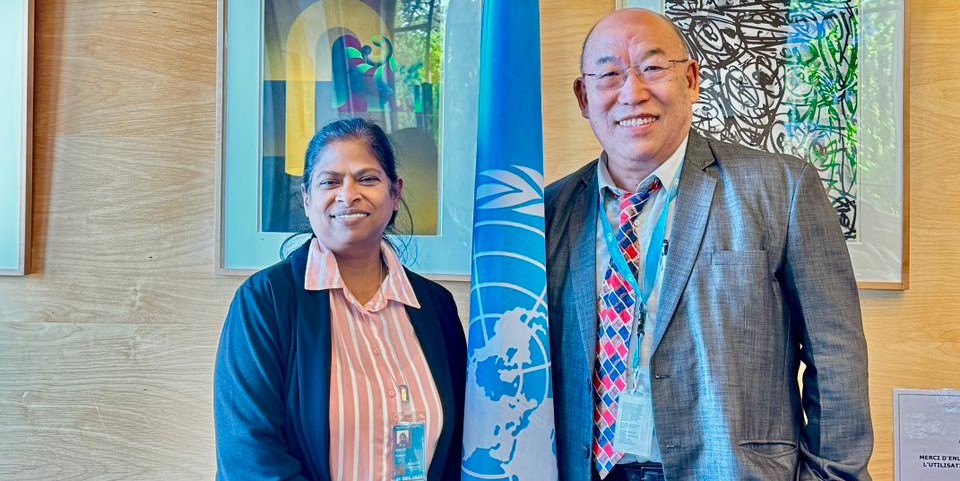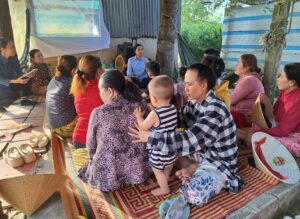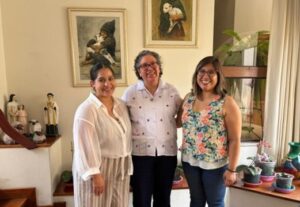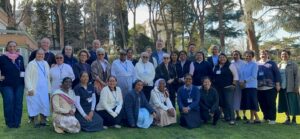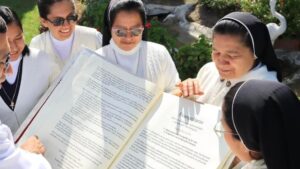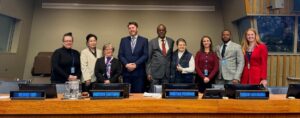By Sr Taskila Nicholas, GSIJP Director of Advocacy and Main NGO Representative in Geneva,
The 99th session of the UN Committee on the Rights of the Child (CRC) took place from 12 to 30 May 2025, in Geneva. Attending the event for the first time as the Congregational NGO Representative based in Geneva, I wondered what the experience would be like. In my new position on the GSIJP team, I have the role of speaking for our grassroots ministries, and I wanted to learn.
A central structure of the committee is the CRC Working Group, which reviews all reports and formulates questions and recommendations for governments to address. It is within this group that NGO advocacy takes place. We present to the committee all the concerns we are aware of, based on our grassroots reports and knowledge.
You will be familiar with the breadth of issues such as access to education, vulnerability of children, discrimination toward the girl-child, child labor, and marriage – the list goes on. We aim to present these issues in a country-specific, concrete context for the committee, so they have a clear understanding. I was inspired to see these real, on-the-ground issues actually appear in the CRC Working Group’s recommendations. It highlights the importance of how local insights influence global commitments.
The work doesn’t stop in Geneva. The recommendations will now go back to the communities in local countries, in our case – where the Good Shepherd mission is present – Indonesia and Brazil. Our aim is to share this information and build the capacity of local organizations to use recommendations as tools for their own advocacy, fostering children’s participation, and safeguarding children’s rights.
For Brazil, recommendations focused on child labor, especially in the informal and agricultural sectors. The committee also emphasized improving access to inclusive education for indigenous, Afro-Brazilian, and low-income children. Indigenous territorial threats are of particular concern in Brazil, and the recommendations focused on children’s vulnerability in the face of environmental and territorial threats. Equally, safeguarding the rights of indigenous peoples from gender-based, race-based, and other structural violence was heightened with recommendations for comprehensive anti-discrimination measures.
Some of the key recommendations for Indonesia included aligning all national laws with the UN Convention on the Rights of the Child (UNCRC) and removing any reservations that limit its application. The committee also strongly urged the strengthening of child participation, especially in legal and policy decisions. Indonesia was called to address child marriage, trafficking, and corporal punishment, particularly in rural areas.
The recommendations from the 99th session underscore the critical responsibility of governments to uphold the fundamental rights of all children. For Indonesia, this entails legal reforms to ensure full consistency with the UNCRC, as well as enhancing transparency and accountability. For Brazil, it requires immediate action to close persistent gaps in protection, education, and equality, particularly for the most marginalized and at-risk children.
Both countries will have further reviews and monitoring. NGOs, civil society, child advocates, and children themselves are critical to local and national advocacy to ensure the CRC sessions are effective.
I concluded the CRC session realizing it was more than policy engagement – it was an act of solidarity. I am convinced that our collective responsibility within the Good Shepherd mission is to bring the committee’s recommendations to the grassroots level, educating, equipping, and empowering the communities we serve.
In Indonesia, Brazil, and beyond, we remain committed to our advocacy for the dignity, protection, and rights of every child – a commitment driven by compassion and rooted in justice.
